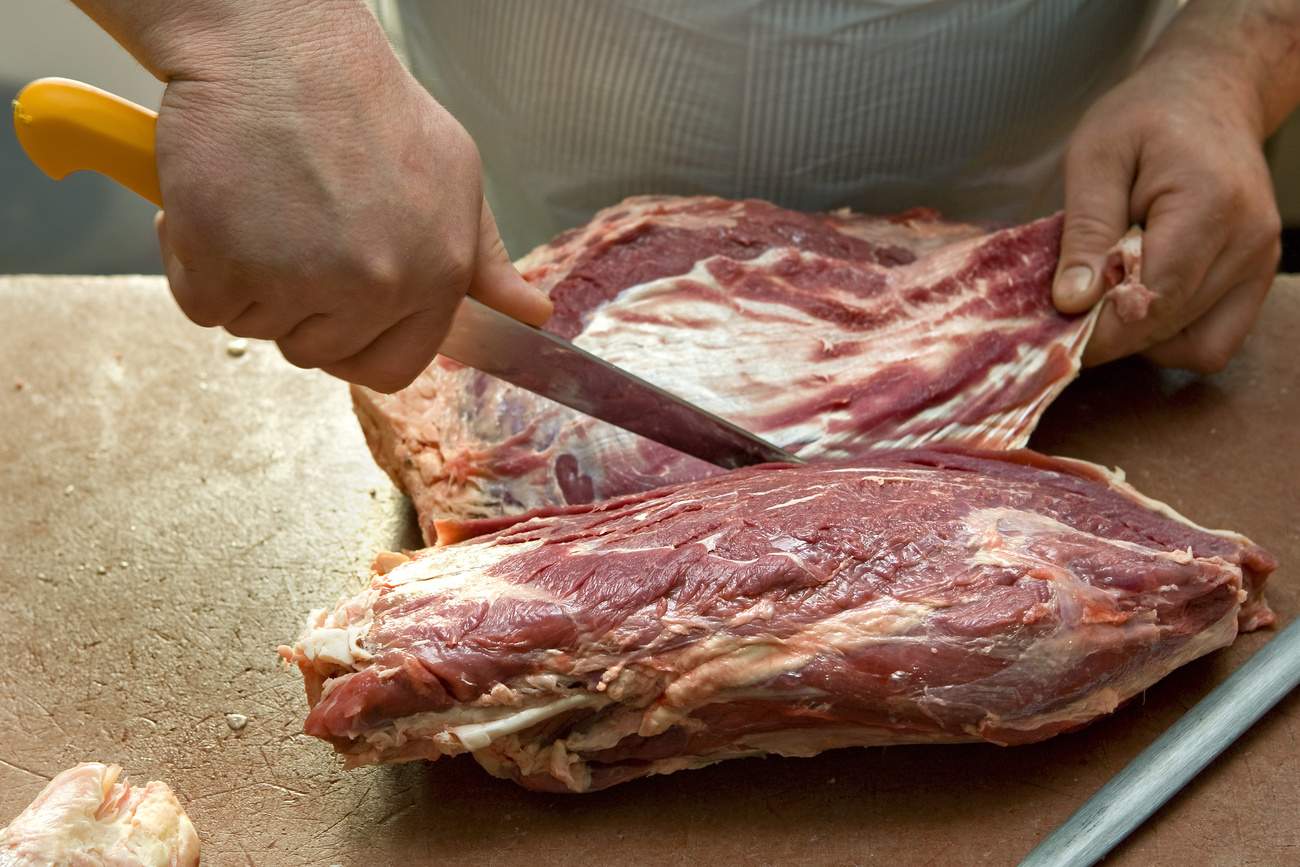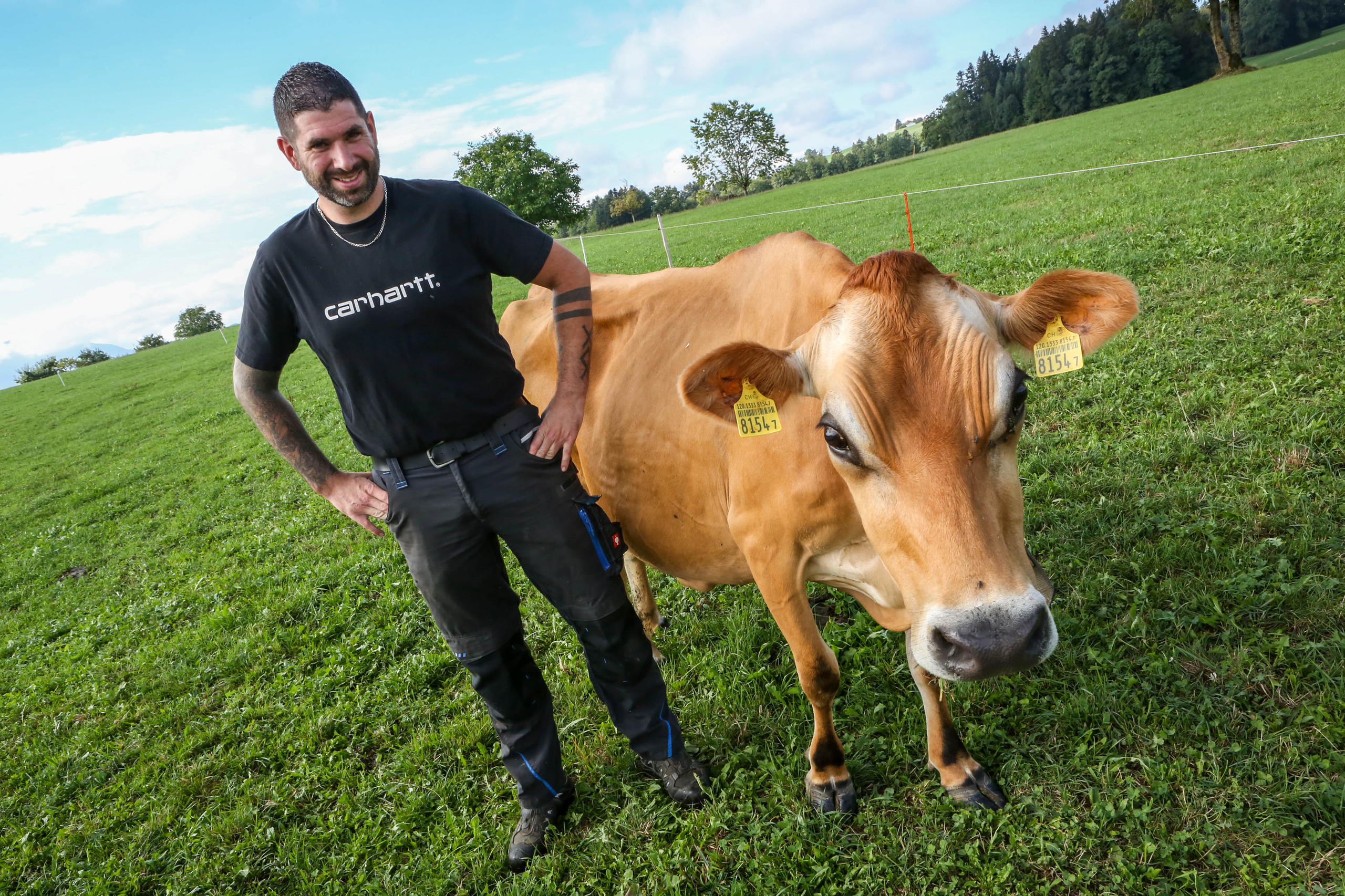
Government’s new climate strategy wants Swiss to eat less meat

On Tuesday, the Swiss government launched its new climate strategy for agriculture, which aims to make the food system more sustainable and strengthen food security by 2050. It concerns the entire chain, from farmers to consumers, via the processing sectors.
The aim of the 2050 Climate Strategy for Agriculture and Food is twofold: to reduce greenhouse gas emissions from agriculture and to help agriculture adapt to climate change, the Federal Office for Agriculture (FOAG) said in a press release on Tuesday.
In concrete terms, according to the guidelines developed by the FOAG in conjunction with the Federal Office for Food Safety and Veterinary Affairs (FOSV) and the Federal Office for the Environment (FOEN), Swiss agriculture must produce in a way that is “adapted to the climate and local conditions”. One of the aims is to achieve a self-sufficiency rate of at least 50% by 2050.
In addition, the greenhouse gases emitted to produce food must be reduced by two-thirds per capita by 2020. Greenhouse gas emissions from domestic agricultural production must be reduced by at least 40% compared to 1990 levels.
Less meat
A range of measures should help achieve these targets. These include reducing food waste throughout the supply chain, managing water sparingly and reducing the sector’s energy consumption by using renewable energies. As far as consumers are concerned, the key is to raise awareness.
A change in behaviour is needed, Michael Beer of the FOSV emphasised to the media, particularly with regard to meat consumption. “Two to three portions of meat a week is a maximum from a health point of view. We are eating three times too much,” said Beer.
An “overestimated” effect
Although the Swiss Farmers’ Union considers it “very positive” that the strategy deals with adapting agriculture to global warming, it believes that limiting livestock production and meat consumption is “problematic”. In its view, the effect that such a measure would have on the climate is overestimated. What’s more, the reality of the market is that people are demanding meat from Switzerland.
The Union is also critical of the fact that the strategy is not accompanied by the financial resources needed to achieve the objectives set. In its view, current resources are insufficient to implement the planned measures.
The umbrella organisation for organic farming, Bio Suisse, welcomes the new strategy, which will enable “significant developments” from which organic farming will benefit. However, it deplores the delay in launching it. It is regrettable that parliament has systematically refused to debate the 2022-2030 agricultural policy, it criticised.

More
Swiss farmers trial methane-busting feed for cows
No strict guidelines
The Agrarian Alliance, which brings together 18 consumer, environmental and animal protection organisations, also welcomed the new strategy, in particular the close collaboration between the FOAG, the OSAV and the FOEN. “From now on, the right hand knows what the left hand is doing”.
The strategy also makes both consumers and producers responsible, without imposing strict directives. Farmers can now prove that they are producing what consumers want.
The new strategy, which is aimed primarily at the administration and politicians, will be used for the short- and medium-term development of policies relating to the food system, according to the FOAG. It is part of the framework set by the Federal Council’s Sustainable Development Strategy 2030. It replaces the FOAG’s agriculture strategy of 2011.

In compliance with the JTI standards
More: SWI swissinfo.ch certified by the Journalism Trust Initiative



























You can find an overview of ongoing debates with our journalists here . Please join us!
If you want to start a conversation about a topic raised in this article or want to report factual errors, email us at english@swissinfo.ch.